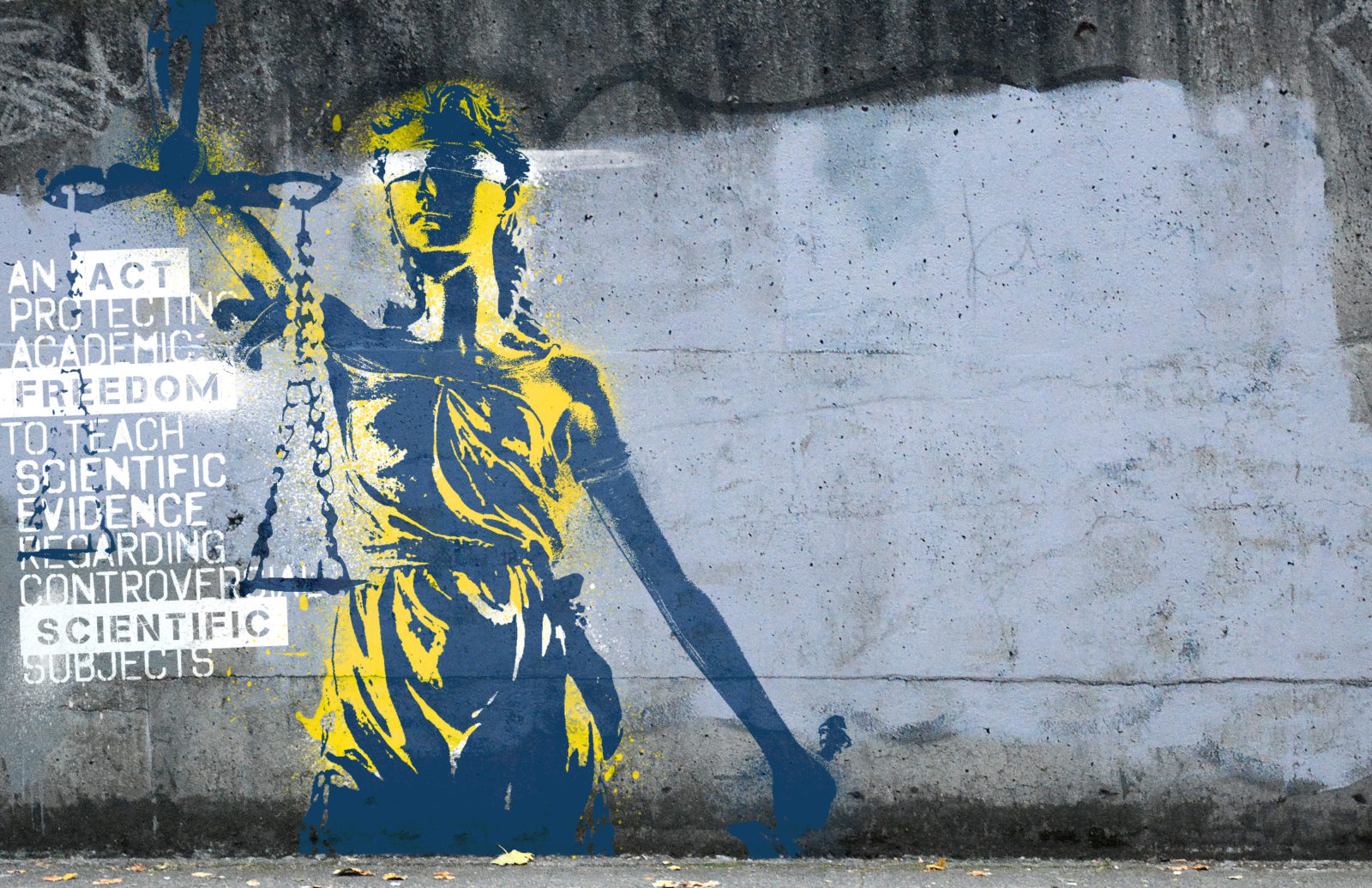Model Academic Freedom Bill
AN ACT PROTECTING TEACHER ACADEMIC FREEDOM TO TEACH SCIENTIFIC EVIDENCE REGARDING CONTROVERSIAL SCIENTIFIC SUBJECTS
WHEREAS, the General Assembly finds that:
(1) An important purpose of science education is to inform students about scientific evidence and to help students develop critical thinking skills necessary to become
intelligent, productive, and scientifically informed citizens;
(2) The teaching of some scientific subjects required to be taught under the curriculum framework developed by the state board of education may cause controversy including, but not limited to, biological evolution, the chemical origins of life, global warming, and human cloning; and
(3) Some teachers may be unsure of the expectation concerning how they should present information when controversy occurs on such subjects; now, therefore,
BE IT ENACTED BY THE GENERAL ASSEMBLY OF THE STATE OF _________:
SECTION 1.
(a) The state board of education, public elementary and secondary school governing authorities, directors of schools, school system administrators, and public elementary and secondary school principals and administrators shall endeavor to create an environment within public elementary and secondary schools that encourages students to explore scientific questions, learn about scientific evidence, develop critical thinking skills, and respond appropriately and respectfully to differences of opinion about scientific subjects required to be taught under the curriculum framework developed by the state board of education.
(b) The state board of education, public elementary and secondary school governing authorities, directors of schools, school system administrators, and public elementary and secondary school principals and administrators shall endeavor to assist teachers to find effective ways to present the science curriculum taught under the curriculum framework developed by the state board of education as it addresses scientific subjects that may cause controversy.
(c) Neither the state board of education, nor any public elementary or secondary school governing authority, director of schools, school system administrators, or any public elementary or secondary school principal or administrators shall prohibit any teacher in a public school system of this state from helping students understand, analyze, critique, and review in an objective manner the scientific strengths and scientific weaknesses of existing scientific theories covered in the course being taught within the curriculum framework developed by the state board of education.
(d) This section only protects the teaching of scientific information, and shall not be construed to promote any religious or non-religious doctrine, promote discrimination for or against a particular set of religious beliefs or non-beliefs, or promote discrimination for or against religion or non-religion.
SECTION 2. By no later than the start of the _______ school term, the department of education shall notify all directors of schools of the provisions of this act. Each director shall notify all employees within the director’s school system of the provisions of this act.
SECTION 3. This act shall take effect upon becoming a law, the public welfare requiring
it.
